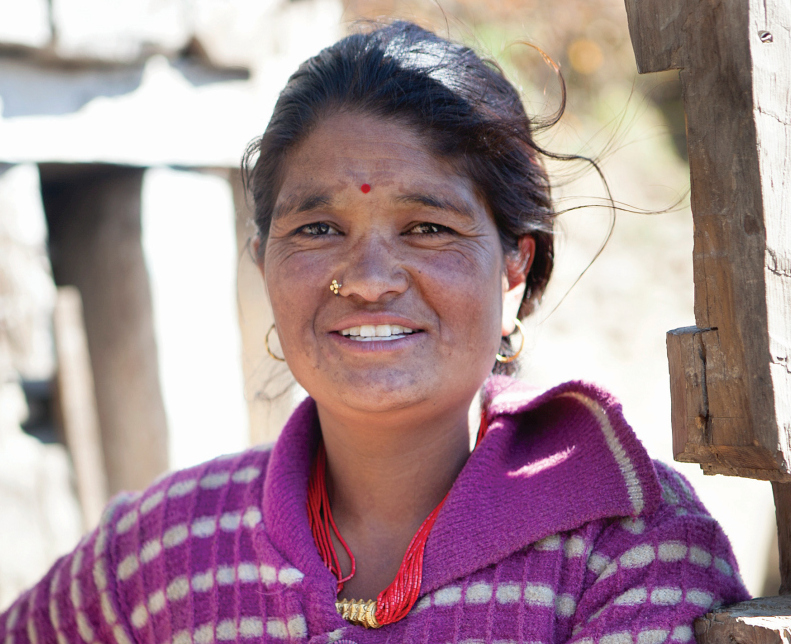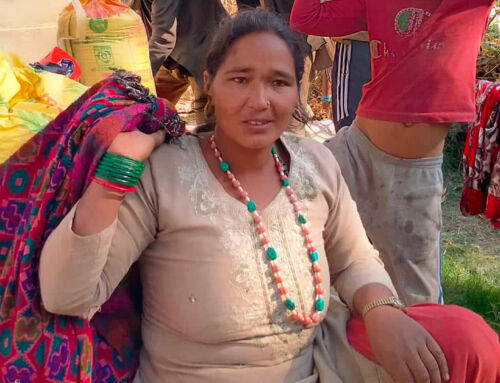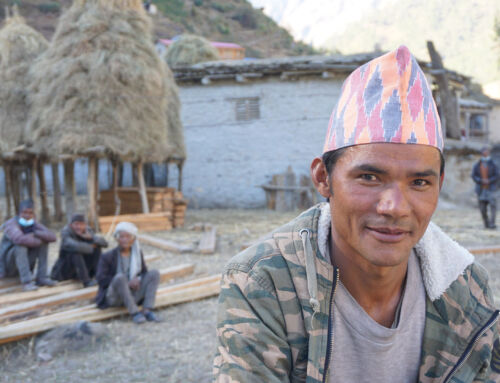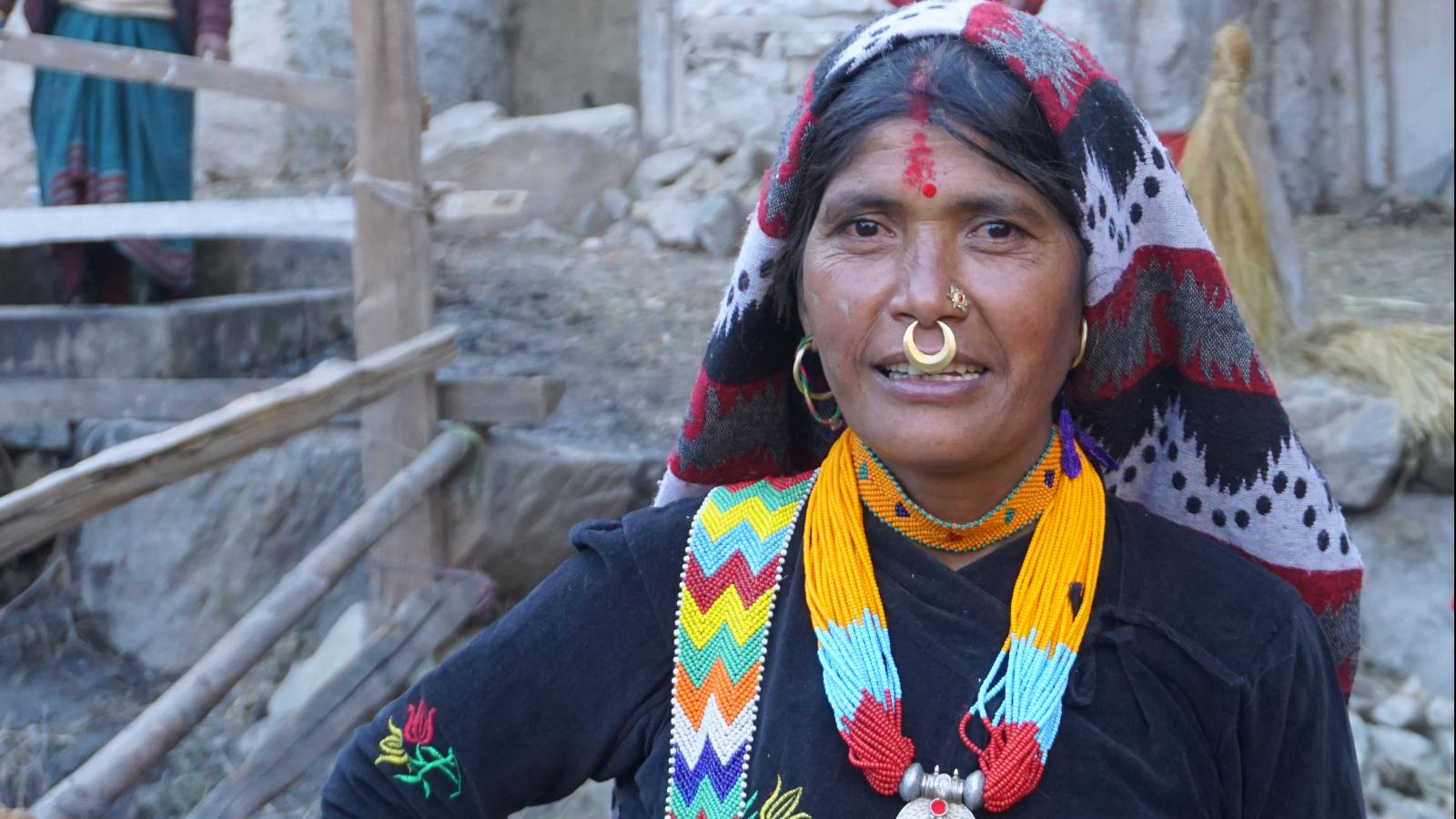When women learn to count numbers, calculate and save up money, they can fund small businesses and improve their living conditions.By Susanne Madsen, Fundraiser and Line Højland, Communications Officer – June 2018
In Jhupu Rokaya’s village Murma, the women have a large metal box with three locks on. Jhupu has the key to one of the locks, but to open the box, the keepers of the two other keys must be present too.
Cannot afford the doctor
For most people in Europe, having a savings account is a natural thing. It enables you to buy new glasses when they break or get a new roof when it rains into the living room. But in Western Nepal, poverty makes people spend their limited means on basic survival. Many men have left the villages to find work abroad, and the women who are left behind cannot count and have never learned to save up money. Before Jhupu became chairperson of the village bank, she could not read, write or count either.
The lack of systematic savings prevents the women from investing in livestock, farmland or vegetable seeds which could improve their living conditions. And if someone in the family is taken ill, there is no money to pay for the doctor. This is the reason why so many minor injuries develop into chronic disabilities in the harsh mountain environment.
Dreaming of a business
To overcome these problems, Mission East teaches women how to count, calculate and save up money. In literacy classes, women are given a textbook, where two of the pages describe the principles of savings and loans. The women in the class are encouraged to create a savings and loan group if they want to. Knowledge of savings is crucial if they are to build livelihoods in the impoverished Karnali Region.
The principle is simple: each woman in the group chooses the amount she wants to put in the box. All the names and amounts are noted down, and each woman has her own notebook where her own payments are noted. If a woman needs to borrow money from the box, it is also noted.
The system enables the women to borrow a larger sum of money than they could save themselves with their limited means. So far, a few women have borrowed money for doctor’s fees, but otherwise, they all exhibit great patience. Some of them have expressed a wish to borrow money for a business, but they know that it will take time for the group to save up that much money.
Meanwhile, Jhupu and the other women enjoy the self-confidence that the new knowledge has given them: “It is important to empower women. Now, we can express our opinion to other people, and that’s important. Before we knew nothing about saving up. Now we have learned how to calculate,” she says.











